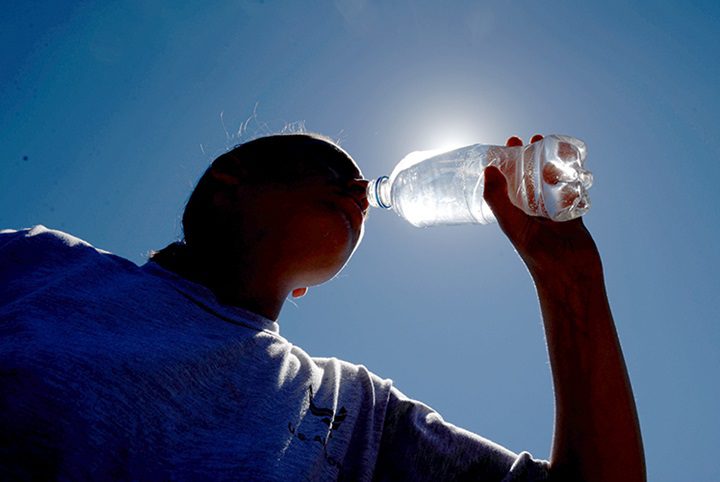

The weather is finally heating up in our region and we will most likely experience some hotter days in the days and weeks to come. Higher temperatures can lead to heat-related illnesses such as heat exhaustion and heat stroke. Fortunately, there are ways to prevent becoming ill from too much heat.
Too much heat and sun can overwhelm anyone but those most at risk from heat exhaustion and heat stroke include older adults, young children, and people who work or exercise outdoors.
Signs of heat exhaustion include:
- Sweating
- Pale, ashen or moist skin
- Muscle cramps (especially for those working or exercising outdoors in high temperatures)
- Fatigue, weakness or exhaustion
- Headache, dizziness or fainting
- Nausea or vomiting
- Rapid heart rate
Heat exhaustion can lead to heatstroke if proper steps are not taken to reduce overheating.
Heatstroke is more serious and occurs when the body reaches a temperature of 104 degrees or higher. It is usually a result of prolonged exposure to high temperatures or physical exertion in high temperatures.
In addition to the above heat exhaustion symptoms, heatstroke symptoms can include:
- Confusion
- Altered speech
- Nausea or vomiting
- Rapid breathing and a racing heartbeat, among other symptoms.
Call 9-1-1 immediately if any of these symptoms occur.
Stay Safe in the Heat
- Drinking water and other fluids often is important. Don’t wait until you’re thirsty!
- Eat foods with lots of water in them.
- Check on family and neighbors who may be more vulnerable to heat.
- Children can also have heat exhaustion because they are so active and forget to drink water.
- Keep children out of the direct sun during the hottest part of the day.
- Never leave babies, young children or pets in a parked car – even with the windows rolled down. Not even for a minute. Cars can get dangerously hot in seconds!
- People who work outside should take frequent breaks to cool off.
How to Cool Down
- Play in fountains and sprinklers, go to the swimming pool, and stay in the shade.
- Try to go somewhere with air conditioning on a hot day.
- Continue to hydrate
For more information: